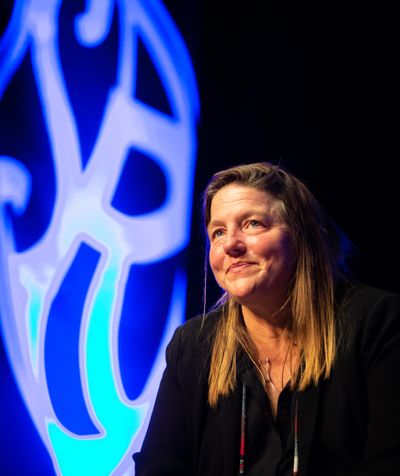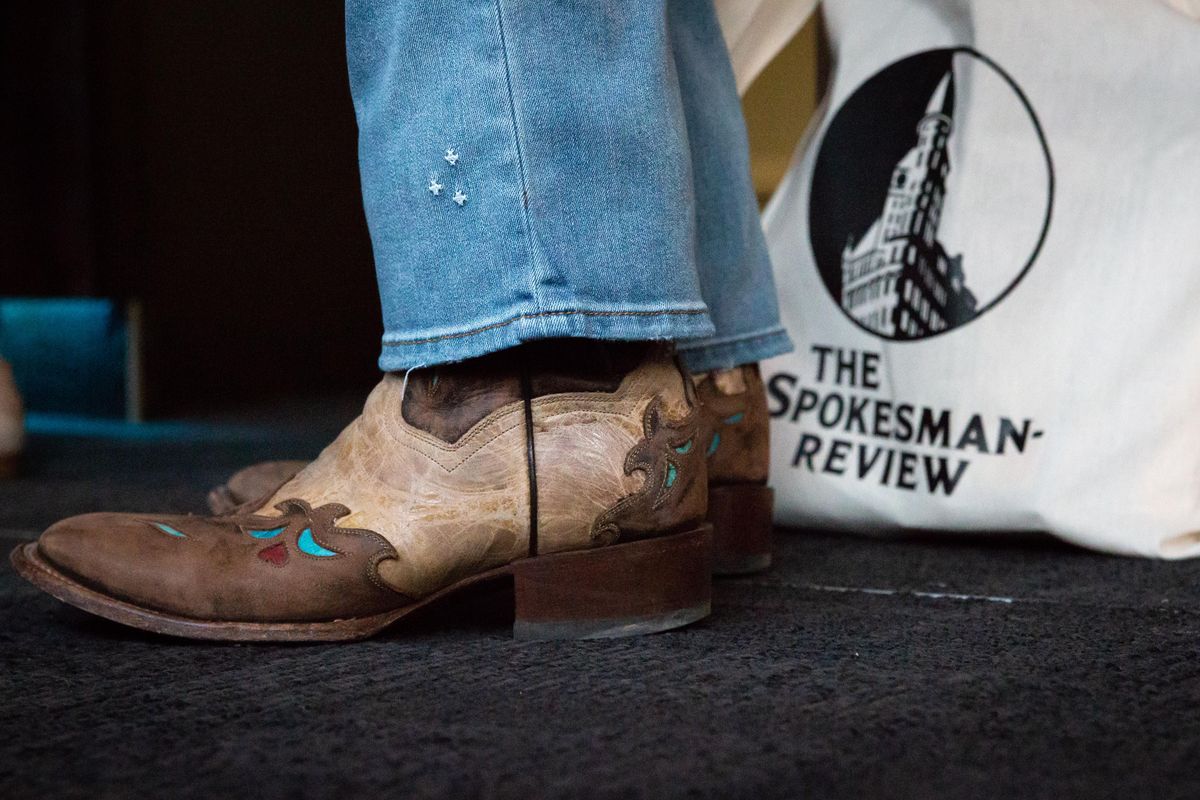Pam Houston brings childhood and ranch life together in first memoir

Pam Houston discovered the “church of wilderness” during childhood trips with a man named Colonel Bob Miller.
Young Houston and a few other kids would pile into the back of Miller’s station wagon and cover themselves with sheets to hide themselves from the outside. Miller would drive them for what “seemed like a long time” and out of the Pennsylvania suburbs, she now recalls.
Miller would say things like, “Just passed the Mississippi,” and “There goes the Missura.”
“All of these were in 6 miles,” she told an audience Tuesday night at the Northwest Passages Book Club.
And they had a rule: If the kids looked from under the sheets, they got “demoted” in their ranking-system game.
But after the drive, the group would park in the woods and learn to connect with nature by doing things like reading compasses and staying up for night watches.
“Those weekends were the most important weekends for me,” Houston said.
Houston’s newest book, “Deep Creek: Finding Hope in the High Country,” is her first memoir. It’s a blend of her childhood memories, like the weekends with the colonel, and life on her 120-acre Colorado ranch. She discussed the book, her childhood, teaching at multiple universities, climate change and her writing process with the Northwest Passages audience Tuesday night at the Bing Crosby Theater.

She said her ranch, near the small southwest Colorado town of Creede, came to her in an unusual way.
After brazenly falling short of earning her Ph.D. at the University of Utah because her book “Cowboys Are My Weakness” drew criticism from faculty and staff, she took to the road in her Toyota Corolla. She had a check for about $21,000 that she figured would be best spent on land.
She drove into the Rocky Mountains and into Creede, where she saw the towering, spirelike cliffs that surround the town.
The setting captured her as much as the people living there.
A local widow, a fan of Houston’s, offered to sell her the ranch, sight unseen, for 5 percent down and a signed copy of her first book.
“I didn’t know about fences or varnish or sweeping chimneys,” she said. “Over 25 years, the ranch grew me up. It made me responsible.”
“It gave me a place to be quiet and still,” she said. “And hear my own voice.”
Houston wrote “Deep Creek” on the property, and when she handed in her first draft to her agent, it was “very ranch-centric” – hay, wood, birds, sheep and donkeys dominated the pages.
The book contained a bit about her childhood, but her agent prodded her to write about it in the same “plain-spoken way” she had about the ranch.
“That was really shocking,” Houston said.
She reworked the book and settled on another draft of “Deep Creek” that saw her childhood – being raised by alcoholic, abusive parents – play a more prominent role.
On April 14, the Northwest Passages book club features former NFL star Curt Warner and his wife, Ana Warner, with their new book “The Warner Boys” about their experiences in raising twins with autism.
Northwest Passages is hosted by The Spokesman-Review.